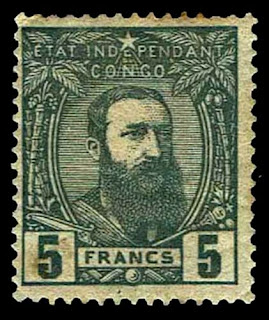Here are some events that happened on February 5th. It could be an event or a person that died or was born on that day
1885 – King Leopold II of Belgium establishes the Congo as a personal possession.
Leopold II (9 April 1835 – 17 December 1909) was King of the Belgians from 1865 to 1909. Born in Brussels as the second but eldest surviving son of Leopold I and Louise of Orléans, he succeeded his father to the Belgian throne in 1865 and reigned for 44 years until his death – the longest reign of any Belgian monarch. He died without surviving male heirs. The current Belgian king descends from his nephew and successor, Albert I.
Leopold was the founder and sole owner of the Congo Free State, a private project undertaken on his own behalf. He used Henry Morton Stanley to help him lay claim to the Congo, the present-day Democratic Republic of the Congo. At the Berlin Conference of 1884–1885, the colonial nations of Europe authorized his claim by committing the Congo Free State to improving the lives of the native inhabitants. Leopold ignored these conditions and ran the Congo using the mercenary Force Publique for his personal gain. He extracted a fortune from the territory, initially by the collection of ivory, and after a rise in the price of rubber in the 1890s, by forced labor from the native population to harvest and process rubber. He used great sums of the money from this exploitation for public and private construction projects in Belgium during this period. He donated the private buildings to the state before his death, to preserve them for Belgium.
Leopold's administration of the Congo was characterized by murder, torture, and atrocities, resulting from notorious systematic brutality. The hands of men, women, and children were amputated when the quota of rubber was not met. These and other facts were established at the time by eyewitness testimony and on site inspection by an international Commission of Inquiry (1904).
Millions of the Congolese people died: modern estimates range from 1 million to 15 million deaths, with a consensus growing around 10 million. Some historians argue against this figure, citing the absence of reliable censuses, the enormous mortality of diseases such as smallpox or sleeping sickness, and the fact that there were only 175 administrative agents in charge of rubber exploitation.
In 1908, the reports of deaths and abuse induced the Belgian government to take over the administration of the Congo from Leopold.
Stamps from Belgium and Belgian Congo depicting Leopold II
1878 Born: André Citroën, French engineer and businessman, founded Citroën (d. 1935)
André-Gustave Citroën (5 February 1878 – 3 July 1935) was a French industrialist and freemason of Dutch and Polish Jewish origin. He is remembered chiefly for the make of car named after him, but also for his application of double helical gears.
Citroën founded the Citroën automobile company in 1919, leading it to become the fourth largest automobile manufacturer in the world by the beginning of the 1930s. Costs for developing the model Traction Avant, which improved the sales for the company, led to bankruptcy in 1934. It was taken over by the main creditor Michelin, who had provided tires for the cars.
He died in Paris, France, of stomach cancer in 1935 and was interred in the Cimetière du Montparnasse, the funeral being led by the Chief Rabbi of Paris.
Stamps depicting Citroën cars
1922 Died: Slavoljub Eduard Penkala, Croatian engineer, invented the mechanical pencil (b. 1871)
Slavoljub Eduard Penkala (20 April 1871 – 5 February 1922) was a Croatian engineer and inventor of Dutch-Polish descent. Eduard Penkala was born in Liptószentmiklós (now Liptovský Mikuláš), then part of Austria-Hungary, to Franciszek Pękała, who was of Polish heritage, and Maria Pękała (née Hannel), who was of Dutch descent. He attended the University of Vienna and Royal Saxon Polytechnic Institute, graduating from the latter on March 25, 1898, and going on to earn a doctorate in organic chemistry. During his studies, he attended violin lessons where he met his future wife, pianist Emily Stoffregen. He then moved with his wife to Zagreb (which was then in the Kingdom of Croatia-Slavonia). To mark his loyalty to his new homeland, he took on the Croatian name Slavoljub (the equivalent of slavophile), becoming a naturalized Croat.
He became renowned for further development of the mechanical pencil (1906) - then called an "automatic pencil" - and the first solid-ink fountain pen (1907). Collaborating with an entrepreneur by the name of Edmund Moster, he started the Penkala-Moster Company and built a pen-and-pencil factory that was one of the biggest in the world at the time. The company, now called TOZ Penkala, still exists today.
Croatian stamp issued to commemorate Penkala










No comments:
Post a Comment